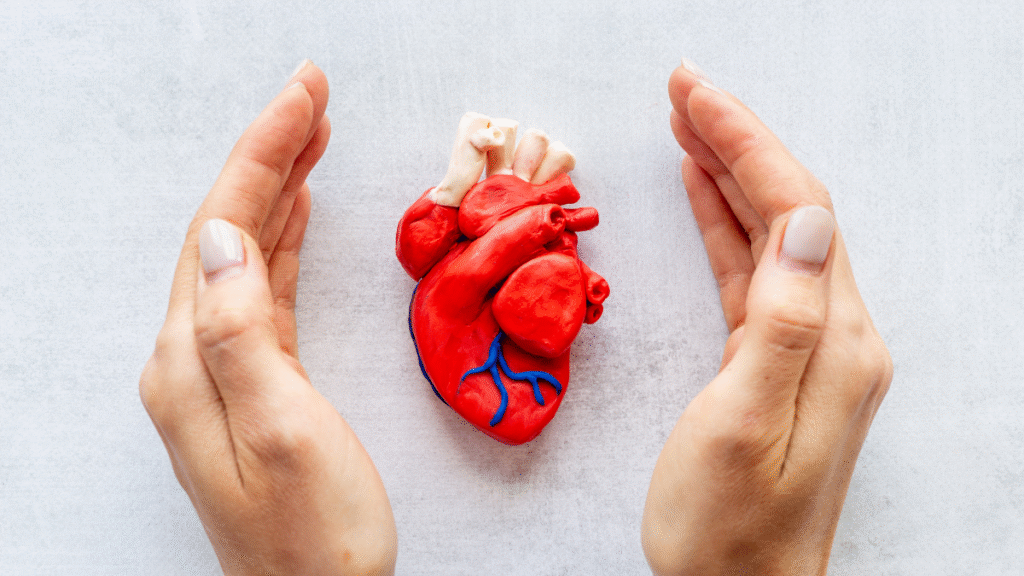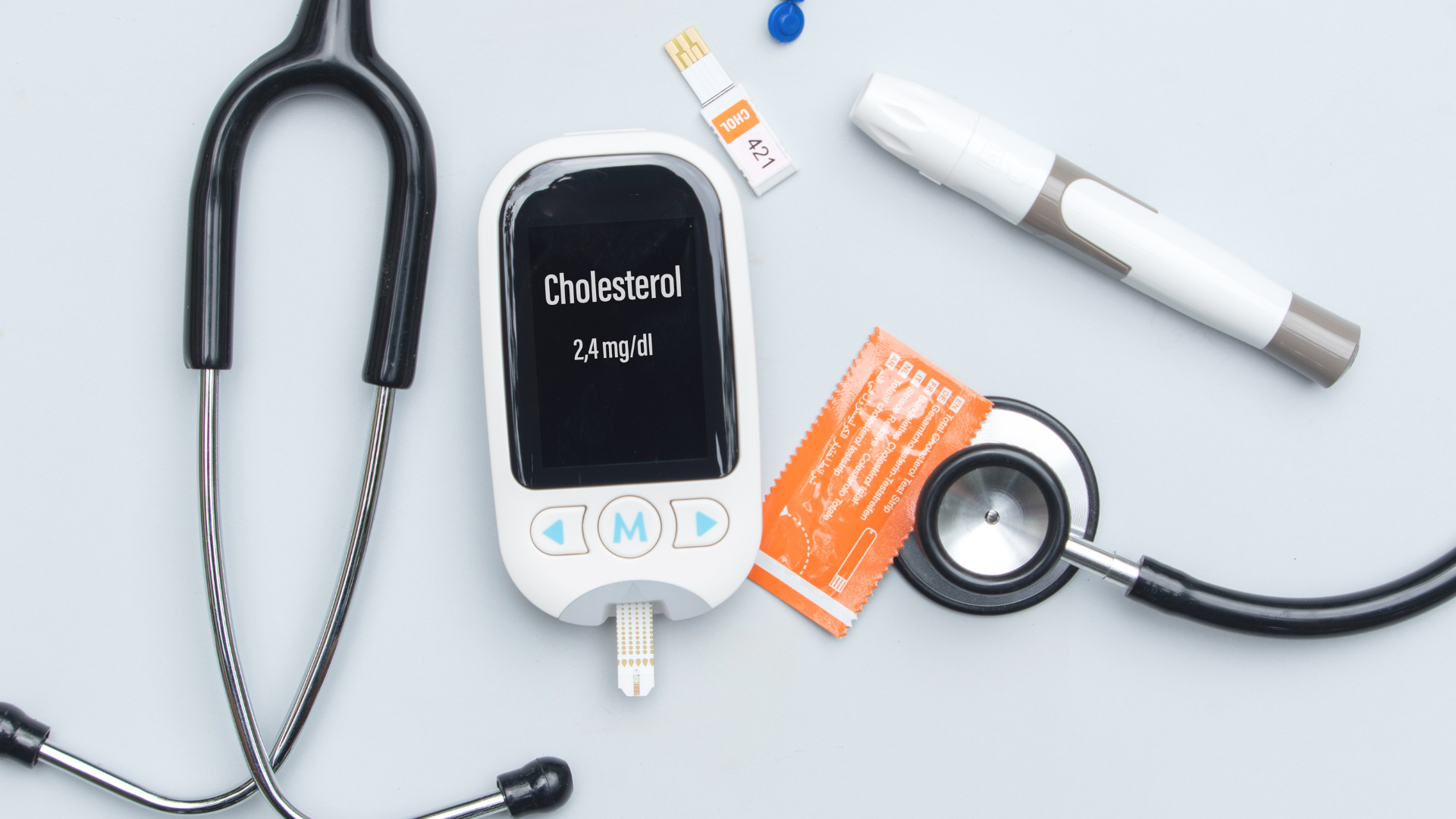Introduction
Menopause is a natural phase of life — a powerful transition marking the end of a woman’s reproductive years. But beneath the surface, a quieter transformation takes place, one that significantly affects heart health.
As estrogen levels drop, women’s risk of heart disease — once lower than men’s — begins to rise sharply after menopause. In fact, according to the American Heart Association, heart disease is the leading cause of death among postmenopausal women.
The good news? With the right knowledge, lifestyle adjustments, and preventive care, women can protect their hearts and lead long, active, and healthy lives.
Understanding the Connection Between Menopause and Heart Health
1. The Role of Estrogen in Heart Protection
Before menopause, estrogen offers powerful protection for the cardiovascular system. It helps:
- Maintain healthy cholesterol levels
- Keep blood vessels flexible and dilated
- Regulate blood pressure
- Prevent plaque buildup in the arteries
When estrogen levels drop during menopause, these protective effects diminish — leaving arteries stiffer, cholesterol levels higher, and the heart more vulnerable to disease.
2. Common Cardiovascular Changes After Menopause
After menopause, several changes can increase cardiovascular risk:
- Increase in LDL (bad cholesterol) and decrease in HDL (good cholesterol)
- Rise in blood pressure due to reduced arterial elasticity
- Weight gain, especially around the abdomen
- Insulin resistance, which can lead to type 2 diabetes
- Higher inflammation throughout the body
Together, these factors contribute to atherosclerosis (plaque buildup in arteries), heart attacks, and strokes.
Warning Signs Women Shouldn’t Ignore
Heart disease symptoms in women often differ from those in men and may go unnoticed.
Common warning signs include:
- Unexplained fatigue or weakness
- Shortness of breath
- Chest pressure, discomfort, or tightness (not always sharp pain)
- Pain in the jaw, neck, shoulder, or upper back
- Dizziness or lightheadedness
- Nausea or cold sweats
Tip: Don’t dismiss these symptoms as “just stress” or “age.” If you experience them, seek medical help immediately.
Lifestyle Changes to Protect Heart Health After Menopause
1. Focus on a Heart-Healthy Diet
Nutrition is the foundation of cardiovascular health. A balanced diet helps maintain cholesterol levels, regulate blood sugar, and manage weight.
Best choices for heart health:
- Fruits and vegetables: Rich in antioxidants and fiber
- Whole grains: Oats, brown rice, quinoa, and whole wheat
- Healthy fats: Olive oil, avocados, nuts, and fatty fish (salmon, mackerel)
- Lean protein: Beans, lentils, and poultry
- Low-fat dairy or fortified plant-based alternatives
Limit: Processed foods, sugar-sweetened drinks, red meat, and trans fats.
Try this: Follow the Mediterranean diet — it’s proven to lower heart disease risk and support overall hormonal health.
2. Stay Physically Active
Exercise is one of the most effective ways to protect your heart post-menopause. It improves circulation, reduces LDL cholesterol, boosts HDL cholesterol, and strengthens the heart muscle.
Recommended routine:
- 150 minutes of moderate activity per week (like brisk walking, swimming, or cycling)
- 2–3 days of strength training to maintain muscle and metabolism
- Include flexibility and balance exercises like yoga or Pilates
Even small changes matter — taking the stairs, walking after meals, or doing housework energetically all contribute to heart fitness.
3. Manage Stress Mindfully
Menopause brings emotional and hormonal fluctuations that can heighten stress and anxiety — both of which negatively impact the heart by increasing cortisol levels and blood pressure.
Effective stress-management techniques include:
- Meditation or deep-breathing practices
- Yoga or tai chi
- Mindfulness or journaling
- Spending time in nature
- Creative outlets (art, music, gardening)
A calm mind equals a calmer heart.
4. Keep Weight and Blood Sugar in Check
During menopause, metabolism slows, and fat tends to accumulate around the abdomen — a risk factor for heart disease and diabetes.
Tips to manage weight and glucose:
- Eat smaller, balanced meals regularly
- Include protein and fiber with every meal to prevent sugar spikes
- Avoid refined carbs and sugary snacks
- Get enough sleep — poor sleep disrupts hormones that regulate hunger and fat storage
5. Quit Smoking and Limit Alcohol
Smoking damages blood vessels and raises blood pressure, while alcohol can increase triglycerides and worsen hormonal balance.
- Quit smoking — your heart health improves within weeks of stopping.
- If you drink, limit it to no more than one small drink a day (or less).
6. Get Regular Health Screenings
After menopause, regular health checkups are crucial to detect issues early.
Ask your doctor about:
- Blood pressure checks (at least once a year)
- Cholesterol and lipid profile
- Blood sugar or HbA1c
- Body mass index (BMI) and waist circumference
- Electrocardiogram (ECG) if you have symptoms or risk factors
Early detection and preventive care can save lives.
7. Consider Hormone Replacement Therapy (HRT) — with Caution
Hormone Replacement Therapy (HRT) can relieve menopausal symptoms and may help maintain heart health if started early in menopause (within 10 years of onset).
However, it’s not suitable for everyone — women with a history of heart disease, stroke, or certain cancers should avoid it.
Always consult your doctor to evaluate the risks and benefits.
Holistic Heart Care: The Mind-Body Connection
The menopausal transition isn’t just physical — it’s deeply emotional.
Loneliness, anxiety, and loss of identity during this phase can indirectly harm heart health through chronic stress and inflammation.
Practicing self-compassion, maintaining strong social connections, and embracing a purpose-driven life can nurture not only emotional well-being but also cardiovascular resilience.
Conclusion
Menopause may bring new challenges, but it also offers an opportunity — a reminder to reconnect with your body and prioritize your health.
While the decline in estrogen does raise cardiovascular risks, your daily choices can make a powerful difference.
By focusing on nutrition, exercise, stress reduction, and regular screening, women can protect their hearts and live vibrantly long after menopause.
Remember: Menopause isn’t the end of vitality — it’s a new beginning for empowered, mindful health.
FAQs on Menopause and Heart Health
1. Does menopause increase heart disease risk?
Yes. The drop in estrogen after menopause leads to changes in cholesterol, blood pressure, and body fat distribution — all of which increase heart disease risk.
2. Can hormone therapy protect heart health?
In some women, starting HRT soon after menopause may provide cardiovascular benefits, but it’s not recommended for everyone. Always seek medical advice.
3. What type of exercise is best for heart health?
A mix of aerobic exercise (walking, cycling) and strength training works best. Yoga and meditation also support stress management and blood pressure control.
4. Is weight gain after menopause normal?
Yes, metabolism slows down, and hormonal changes make fat accumulation more likely. However, a balanced diet and regular exercise can prevent unhealthy gain.
5. How can I know if my heart is healthy after menopause?
Regular checkups, including blood pressure, cholesterol, and blood sugar tests, are essential. Your doctor may also suggest an ECG or echocardiogram based on your history.





